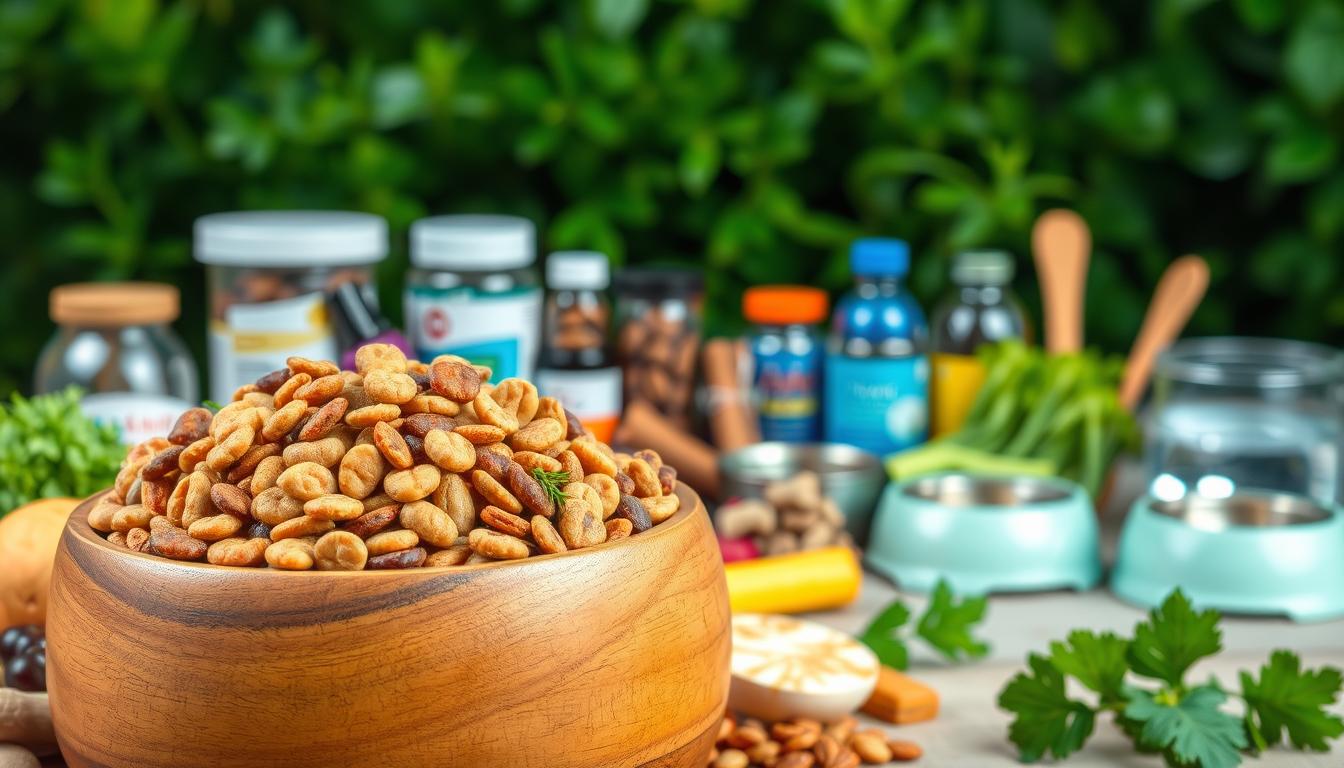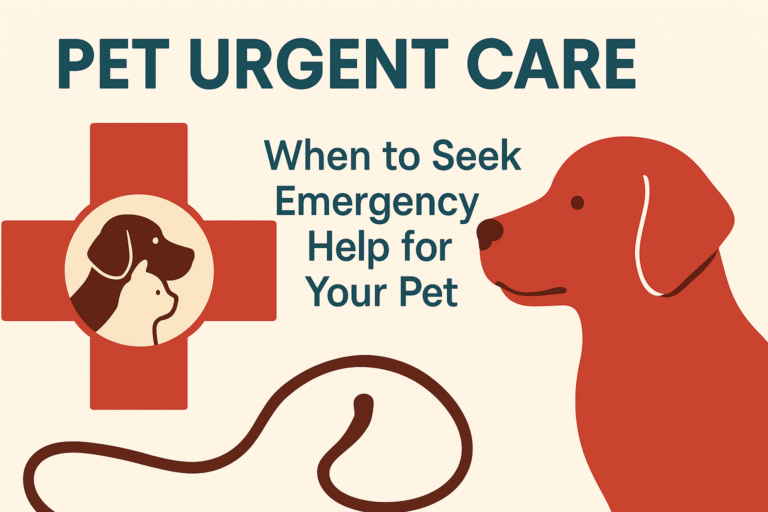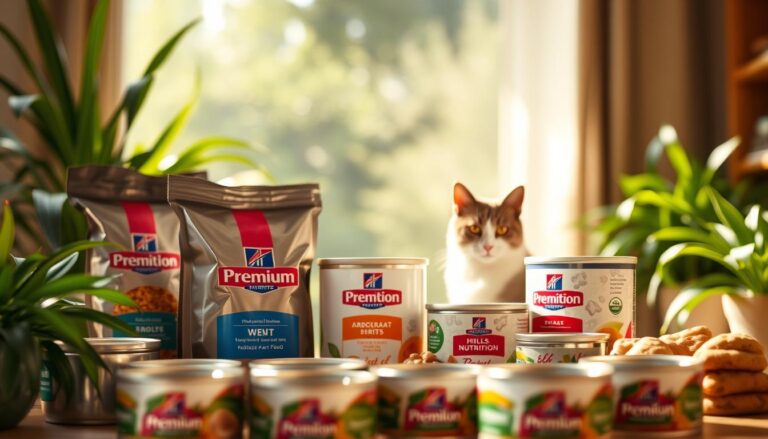Discover the Ultimate Pet Nutrition for a Healthy, Happy Pet
Discover the Ultimate Pet Nutrition for a Healthy, Happy Pet
Providing your pet with the right nutrition is crucial for their overall health and happiness. A well-balanced diet ensures your pet maintains optimal energy levels and longevity.
A balanced diet is fundamental to your pet’s health, influencing everything from their coat condition to their overall well-being. Understanding the basics of pet nutrition helps you make informed decisions about their diet.
Key Takeaways
- A balanced diet is crucial for maintaining your pet’s overall health.
- Understanding pet nutrition basics helps in making informed dietary decisions.
- The right nutrition ensures optimal energy levels and longevity.
- A well-balanced diet influences your pet’s coat condition and overall well-being.
- Providing the ultimate nutrition is key to a healthy, happy pet.
The Foundation of Pet Health: Why Nutrition Matters
The food we feed our pets is fundamental to their health and longevity. A well-balanced diet provides the necessary building blocks for their overall wellbeing, influencing everything from their energy levels to their behavior.
The Link Between Diet and Longevity
A pet’s diet is directly linked to their lifespan. Nutritional elements such as proteins, fats, vitamins, and minerals play a crucial role in maintaining their health. A diet rich in essential nutrients can help prevent chronic diseases, ensuring a longer and healthier life for pets.
Research has shown that pets fed with high-quality, nutrient-rich food tend to live longer than those on lower-quality diets. This is because such diets support their overall health, reducing the risk of obesity, diabetes, and other diet-related conditions.
| Nutritional Element | Role in Pet Health |
|---|---|
| Proteins | Build and repair tissues |
| Fats | Provide energy and support skin health |
| Vitamins and Minerals | Support various bodily functions |
How Proper Nutrition Affects Behavior and Energy
Proper nutrition not only affects a pet’s physical health but also their behavior and energy levels. A balanced diet can help maintain their energy levels, ensuring they remain active and engaged. Moreover, nutritional deficiencies can lead to behavioral issues, such as anxiety or lethargy.
For instance, a diet rich in omega-3 fatty acids can support brain health, potentially reducing the risk of behavioral problems. Similarly, a diet with the right balance of carbohydrates can help maintain stable energy levels.
By understanding the importance of nutrition in pet health, owners can make informed decisions about their pet’s diet, ensuring they lead happy, healthy lives.
Nutritional Needs Across Different Pet Types
The nutritional requirements of pets vary significantly across different species, necessitating a tailored approach to their diets. Understanding these diverse needs is crucial for pet owners to ensure their pets lead healthy, happy lives.
Canine Nutrition Essentials
Dogs require a balanced diet that includes high-quality protein, moderate amounts of fat, and complex carbohydrates. Canine nutrition is also about providing essential vitamins and minerals. For instance, dogs need:
- Protein from animal sources like chicken or beef
- Omega-3 fatty acids for skin and coat health
- Complex carbohydrates like brown rice or sweet potatoes for energy
A well-balanced diet for dogs supports their overall health, from maintaining a healthy coat to ensuring proper digestive health.
Feline Dietary Requirements
Cats are obligate carnivores, meaning they require a diet rich in protein from animal sources. Feline dietary needs include essential nutrients like taurine, vitamin A, and arachidonic acid. Key components of a cat’s diet should include:
- High-quality protein sources like salmon or chicken
- Taurine for heart health
- Vitamin A for vision and immune function
Meeting these nutritional needs is vital for maintaining a cat’s overall health and preventing diet-related issues.

Small Pets and Exotic Animals
Small pets and exotic animals have unique nutritional requirements that differ significantly from dogs and cats. For example, rabbits need high-fiber diets rich in hay and vegetables, while birds require a balanced mix of pellets, fruits, and vegetables. Understanding the specific dietary needs of these pets is crucial for their health and wellbeing.
In conclusion, the nutritional needs of pets vary widely across different species. By understanding and meeting these needs, pet owners can help ensure their pets live long, healthy lives.
Ultimate Pet Nutrition: Key Components for Optimal Health
Achieving ultimate pet nutrition requires a deep understanding of the key components that contribute to optimal health. A well-balanced diet is crucial for maintaining your pet’s overall well-being, and it involves more than just providing them with food.
Essential Proteins and Amino Acids
Proteins are a fundamental component of a pet’s diet, playing a critical role in building and repairing tissues. Essential amino acids, which cannot be produced by the body, must be obtained through their diet. These amino acids are vital for various bodily functions, including the production of enzymes, hormones, and other biomolecules essential for health.
For instance, dogs require a diet rich in protein from animal sources like chicken, beef, or fish. Cats, being obligate carnivores, also require high amounts of protein from animal sources. Ensuring that your pet’s diet includes these essential proteins and amino acids is vital for their overall health.
| Pet Type | Primary Protein Sources | Essential Amino Acids |
|---|---|---|
| Dogs | Chicken, Beef, Fish | Lysine, Methionine |
| Cats | Chicken, Salmon, Tuna | Taurine, Arginine |
Healthy Fats and Fatty Acids
Fats are another crucial component of a pet’s diet, providing energy and supporting the absorption of vitamins. Fatty acids, particularly omega-3 and omega-6, play significant roles in maintaining skin, coat, and heart health. These healthy fats also support brain function and can help reduce inflammation.
Sources of healthy fats include fish oil, flaxseed, and chicken fat. Ensuring the right balance of fatty acids is essential, as an imbalance can lead to health issues.
Vitamins, Minerals, and Micronutrients
Vitamins and minerals are essential for various bodily functions, including immune response, nerve function, and the maintenance of healthy skin and coat. Micronutrients like vitamin A, vitamin D, calcium, and phosphorus are critical for bone health and development.
A well-balanced diet should include a mix of these vitamins and minerals. Deficiencies can lead to a range of health problems, from mild to severe.
Prebiotics and Probiotics for Gut Health
Prebiotics and probiotics play a crucial role in maintaining a healthy gut microbiome. Prebiotics serve as food for beneficial bacteria, while probiotics introduce new beneficial bacteria into the gut. This balance is essential for digestive health and can impact overall well-being.
Sources of prebiotics include fiber-rich foods like chicory root and beet pulp. Probiotics can be found in certain pet foods or administered as supplements. Maintaining a healthy gut microbiome can help boost your pet’s immune system and overall health.
Choosing Premium Pet Food: What to Look For
Selecting the right premium pet food is a crucial decision for pet owners who want to ensure their pets lead healthy lives. With the numerous options available, understanding what makes a pet food premium is essential.
When browsing through different pet food products, the packaging can be overwhelming due to the various claims and labels. Understanding these labels is crucial for making an informed decision.
Decoding Pet Food Labels
Pet food labels contain a wealth of information about the product, including its ingredients, nutritional content, and feeding guidelines. The ingredient list is particularly important as it tells you what the food is made of. Look for products that list specific animal sources (e.g., chicken, salmon) rather than generic terms (e.g., meat, by-products).
Nutritional adequacy statements are another critical component. These statements indicate whether the food meets the nutritional levels established by the AAFCO (Association of American Feed Control Officials) or NRC (National Research Council). Ensuring the food is complete and balanced for your pet’s life stage is vital.

Common Ingredients to Avoid
Some ingredients in pet food can be detrimental to your pet’s health. Fillers like corn, wheat, and soy are often used to bulk up the food but provide little nutritional value. By-products and meat meals can be of questionable quality and may contain parts not suitable for consumption.
Artificial preservatives (e.g., BHA, BHT, ethoxyquin) and colors can also be harmful. Opting for foods that use natural preservatives (e.g., vitamin E, tocopherols) is generally a safer choice.
| Ingredient | Potential Concern | Better Alternative |
|---|---|---|
| Corn, Wheat, Soy | Low nutritional value, potential allergens | Whole grains, potatoes, sweet potatoes |
| By-products, Meat Meals | Variable quality, potential contaminants | Named protein sources (chicken, salmon) |
| Artificial Preservatives | Potential health risks | Natural preservatives (vitamin E, tocopherols) |
Addressing Special Dietary Needs and Restrictions
Pets with specific dietary needs or restrictions require careful consideration when choosing their food. For instance, pets with food allergies may need novel protein sources or hypoallergenic diets.
For pets with sensitivities, limited ingredient diets can be beneficial. It’s also crucial to consider the life stage and lifestyle of your pet. Puppies and kittens, for example, have different nutritional needs than adult pets.
Consulting with a veterinarian can provide valuable insights into your pet’s specific needs, ensuring you choose a premium pet food that supports their health and well-being.
Conclusion: Creating a Balanced Nutritional Plan for Your Pet
A well-balanced diet is crucial for maintaining your pet’s overall health and wellbeing. By understanding your pet’s nutritional needs and making informed choices when selecting pet food, you can ensure they lead a healthy and happy life. A balanced nutritional plan takes into account the specific requirements of your pet, including their age, breed, and health conditions.
To create a balanced nutritional plan, consider the key components of ultimate pet nutrition, such as essential proteins, healthy fats, and vital micronutrients. When choosing pet food, look for products that meet your pet’s nutritional needs and avoid common ingredients that can be detrimental to their health. By doing so, you can provide your pet with the nutrients they need to thrive.
A healthy pet is a happy pet. By prioritizing pet nutrition and creating a balanced nutritional plan, you can help ensure your pet lives a long, healthy, and happy life. This involves ongoing monitoring and adjustments as needed to maintain optimal health.
FAQ
What is ultimate pet nutrition, and why is it important for my pet’s health?
Ultimate pet nutrition refers to providing your pet with a well-balanced diet that meets their nutritional needs, ensuring they lead a healthy and happy life. A balanced diet is crucial for maintaining your pet’s overall health, energy levels, and longevity.
How does a pet’s diet affect their longevity?
A pet’s diet plays a significant role in determining their lifespan. A diet rich in essential nutrients can help promote a long and healthy life, while a diet lacking in vital nutrients can lead to health problems and a shorter lifespan.
What are the nutritional needs of dogs, and how do they differ from those of cats?
Dogs and cats have different nutritional needs. Dogs require a diet rich in protein, moderate in fat, and complex in carbohydrates, while cats are obligate carnivores and require a diet high in protein and fat from animal sources.
What are the key components of ultimate pet nutrition?
The key components of ultimate pet nutrition include essential proteins and amino acids, healthy fats and fatty acids, vitamins, minerals, and micronutrients, as well as prebiotics and probiotics for gut health.
How do I choose the right pet food for my pet?
To choose the right pet food, you should decode pet food labels, avoid common ingredients that can be detrimental to your pet’s health, and address any special dietary needs or restrictions your pet may have.
What should I look for when reading pet food labels?
When reading pet food labels, look for the AAFCO or NRC statement, check the ingredient list for named protein sources, whole grains, and avoid fillers and by-products.
Are prebiotics and probiotics essential for my pet’s diet?
Yes, prebiotics and probiotics are essential for maintaining your pet’s gut health, which is crucial for their overall wellbeing and immune system.
Can I switch my pet’s food abruptly, or should I do it gradually?
It’s recommended to transition your pet’s food gradually to prevent digestive upset. Gradually introduce the new food over a period of 7-10 days, mixing it with their current food.




